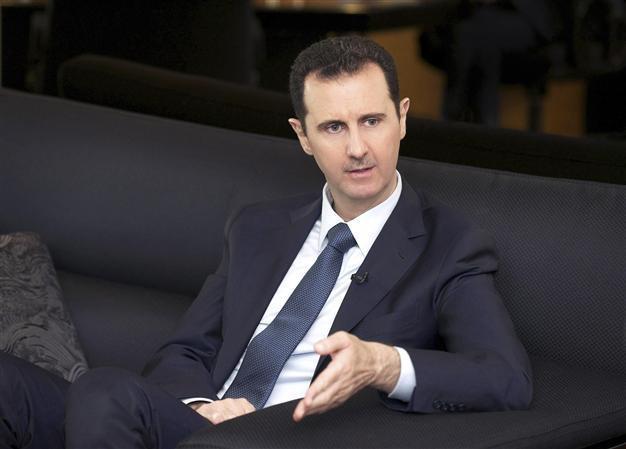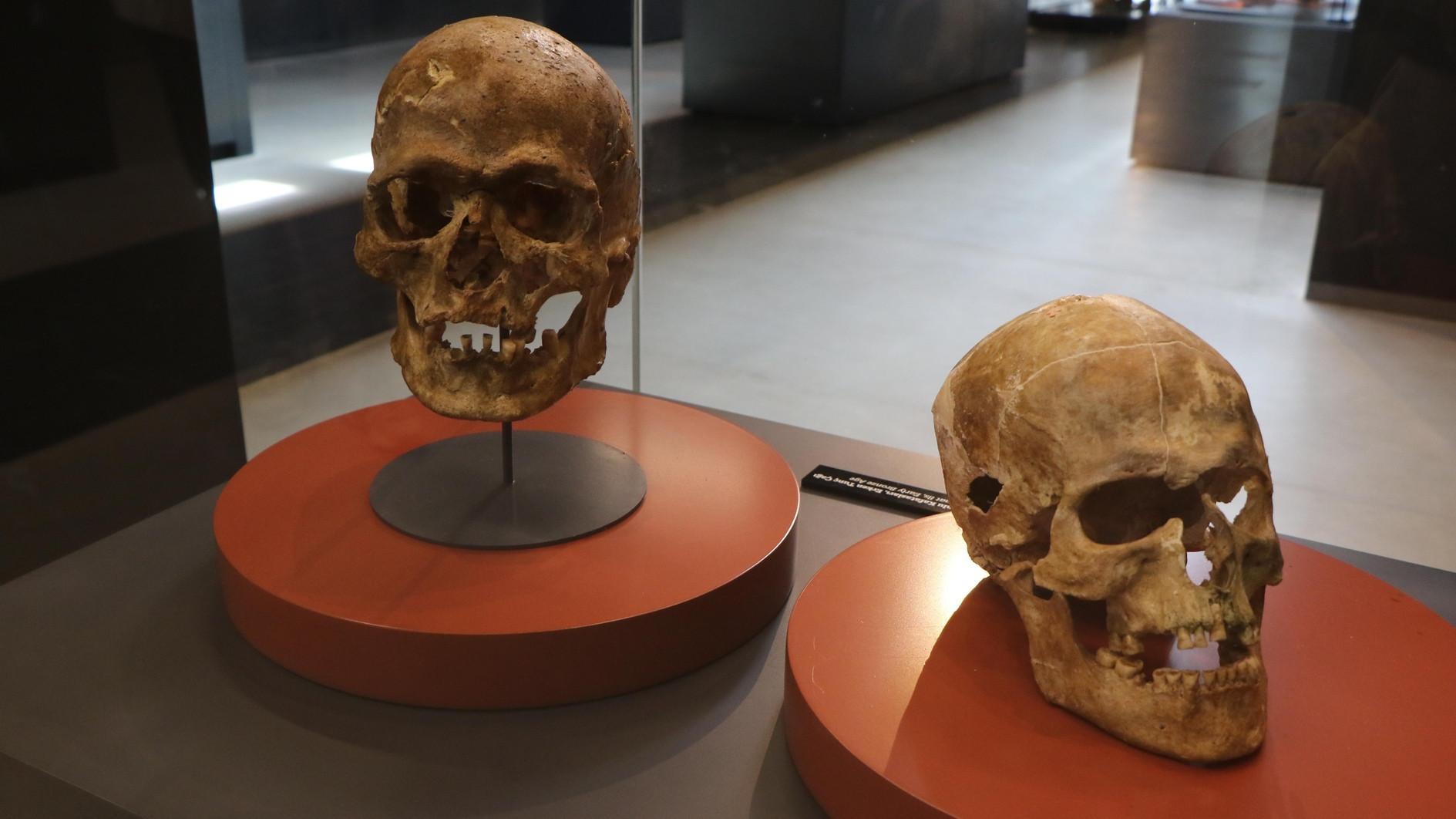Syria's Assad to lead during transition: minister
DAMASCUS - Agence France-Presse

Syria's President Bashar al-Assad speaks during an interview. REUTERS Photo
Syria's Bashar al-Assad will remain president and lead any transition agreed upon in Geneva peace talks planned for next month, a government minister insisted on Wednesday."If anyone thinks we are going to Geneva 2 to hand the keys to Damascus over (to the opposition), they might as well not go," Information Minister Omran al-Zohbi said in remarks carried by the official SANA news agency.
"The decision rests with President Assad. He will lead the period of transition, if there is one. He is the leader of Syria... And he will remain the president of Syria." Zohbi also said that Saudi Arabia, one of the main backers of the rebels, should be excluded from the peace conference, accusing it of arming and training "terrorists" fighting in Syria.
The rebels battling Assad's regime in a war that has claimed 126,000 lives since March 2011 have insisted he step down as part of any transition.
The two sides are set to meet in Geneva on January 22 in talks brokered by the UN-Arab league envoy Lakhdar Brahimi.
The conference is envisioned as a follow-up to Geneva 1 in June 2012, in which the two sides agreed on the formation of a transitional government without specifying what role if any Assad would have in it. The plan was never implemented.
The dispute over Assad's role in the transition, and the endemic divisions among both the external opposition and rebels battling on the ground, have cast doubt over whether the two sides can even reach an agreement let alone implement it.
The National Coalition, an umbrella opposition group, has demanded the creation of a "transitional governing body" with "full executive powers" that excludes Assad and his inner circle.
The conflict began nearly three years ago with peaceful pro-democracy protests inspired by the Arab Spring but escalated into a full-scale civil war after Assad's regime launched a brutal crackdown.
Today hundreds of armed groups, including powerful jihadist brigades affiliated with Al-Qaeda, are battling both the regime and each other, complicating any efforts to reach a political settlement.
Brahimi has said both Iran -- a key ally of the Damascus regime -- and Saudi Arabia should take part in the Geneva talks.
But the rebels have said Iran should be excluded while the regime has said Saudi Arabia should be barred from the meeting, accusing Riyadh of supporting "terrorists" in Syria, the regime's term for all the armed rebels. "We are going to Geneva to talk to Syrians, not Saudis. There is an opposition which is linked to intelligence services, which have different agendas," Zohbi said.
"Saudi Arabia and Israel have an interest in attacking (the government) in Damascus and continuing the war so they can impose their conditions," he added.
"All the evidence indicates that the Saudi terrorists are trained by Saudi intelligence," he said, adding that Western nations are "aware of the danger" posed by such groups.
















